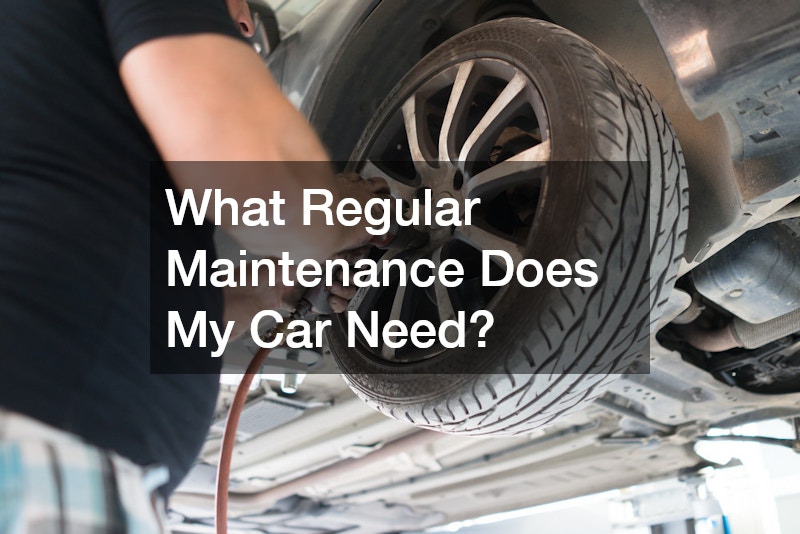Understanding auto repair can be daunting for car owners, yet it is a crucial aspect of vehicle ownership. Being unaware of essential auto repair FAQs may lead to unexpected situations that could have been easily avoided. In this article, we aim to answer some of the most frequently asked questions about vehicle maintenance and repairs to help you make informed decisions when it comes to maintaining and repairing your vehicle. By the end of this article, you’ll have a better grasp of the basics, potentially saving you time and money at your next auto repair service. Let’s embark on this journey to empower you as an informed car owner.
What Regular Maintenance Does My Car Need?

Regular maintenance is the cornerstone of keeping your vehicle in optimal condition. Auto repair FAQs often highlight the importance of routine checks, such as oil changes, brake inspections, and tire rotations. Consistent maintenance helps prevent costly repairs by diagnosing potential issues early, ensuring your car performs efficiently.
Many car owners overlook the significance of simple procedures such as checking fluid levels and replacing air filters. Regular inspections at a tire shop can prevent uneven wear and extend tire life, contributing to safer driving experiences. Ensuring these small steps are part of your maintenance routine can prevent more significant, expensive problems later.
Vehicle wraps are an aesthetic addition, but they should not replace regular maintenance procedures. Keep track of manufacturer-recommended service schedules and consult your mechanic for any specific needs related to your car model. By adhering to these practices, you can enjoy a reliable and smooth-running vehicle for years to come.
Also, don’t forget about seasonal maintenance. As temperatures change, your vehicle may require different fluids, tire pressure adjustments, and battery checks. For example, in colder months, batteries may drain more quickly, and engine oil may thicken. Addressing seasonal factors can go a long way in preventing inconvenient and costly repairs.
How Often Should I Change My Oil?
Oil changes are vital to your car’s health, yet the frequency at which they should occur can vary based on several factors. For most vehicles, a safe bet is to change the oil every 3,000 to 5,000 miles, though newer models with advanced engines might allow for longer intervals. Understanding auto repair FAQs surrounding oil changes can help ensure optimal engine performance and longevity.
Engines function efficiently when the oil is clean, as it helps with lubrication and temperature regulation. Neglecting regular oil changes can lead to significant engine damage, thereby increasing the need for serious auto repair services. Always refer to your owner’s manual or consult with a trusted mechanic to establish an appropriate oil change schedule for your vehicle.
Taking your car to local auto repairs for oil changes also provides an opportunity for professionals to inspect other elements such as filters, belts, and coolant levels. This proactive approach helps maintain the overall health of your vehicle. Keep track of your oil change dates and always select high-quality oil compatible with your car’s engine.
Synthetic oils may cost more upfront, but can extend the time between oil changes while providing better protection. Ask your mechanic whether synthetic oil is suitable for your vehicle—it might offer better performance in extreme temperatures or under heavy engine loads.
What Are the Signs of Brake Problems?
Understanding the signs of brake problems is a critical aspect of auto repair FAQs that every driver should be familiar with. Squeaking, grinding noises, or a soft brake pedal are common indications of potential brake issues. Regularly checking your brakes can avert the possibility of needing the assistance of a car accident lawyer due to brake failures.
If you experience vibration when applying the brakes or notice uneven stopping, it could signal warped rotors. Brake warning lights on your dashboard are also a noteworthy alert that should never be ignored. Addressing these symptoms with timely car maintenance can prevent more severe problems, ensuring your safety on the road.
A visit to local auto repairs for a comprehensive brake inspection can diagnose and repair any underlying problems, ensuring your car’s braking system is reliable. By keeping your brakes in good condition, you enhance your vehicle’s safety, providing peace of mind whether you’re navigating city streets or highways.
In addition, understanding the difference between front and rear brake systems and how they wear over time can be beneficial. Front brakes usually wear out faster because they handle more of the stopping power. Being aware of this pattern can help you plan more accurately for future service appointments.
Why is My Check Engine Light On?

The insight behind a check engine light tops the list of auto repair FAQs as it can indicate a multitude of issues. Common causes range from a loose gas cap to more severe engine problems requiring immediate attention. Ignoring this warning may necessitate costly repairs in the future.
Utilizing a diagnostic tool or visiting local auto repairs can help pinpoint the exact cause of the light. Experienced mechanics can interpret error codes and provide the necessary repairs, preventing potential damage to other car components. Addressing the issue promptly is essential to maintaining your vehicle’s performance and fuel efficiency.
The peace of mind derived from resolving the reason behind a check engine light is invaluable. Consistent vigilance and professional assistance ensure your vehicle runs smoothly, reducing the chance of unexpected breakdowns. Being proactive can prevent the need for more drastic measures, such as resorting to a local towing service.
How Can I Avoid Costly Repairs?
Avoiding costly repairs is a consistent theme across auto repair FAQs, emphasizing the importance of preventive maintenance and timely attention to small issues. Regular checkups, keeping up with scheduled services, and listening to your vehicle’s needs are crucial steps. Addressing minor issues before they escalate can save significant money in the long run.
Building relationships with local windshield replacement and repair services ensures you have trustworthy professionals to rely on in times of need. Having a record of your vehicle’s maintenance helps mechanics diagnose and fix issues more effectively, reducing labor costs and unnecessary work. Documenting these details reinforces transparency and promotes clear communication with your repair shop.
Additionally, staying informed about your car’s systems through resources such as auto repair manuals or online tutorials can aid in identifying potential problems early. Even minor maintenance tasks like replacing windshield wipers or air filters can prevent larger issues. Empowered with this knowledge, you can make better decisions and prolong your vehicle’s lifespan.
Another good habit is setting aside a small emergency car repair fund. That way, even if a repair does become necessary, you won’t be caught off guard financially.
What Should I Know About Tire Care?
Tire care is another prevalent topic within auto repair FAQs, emphasizing routine checks for tire pressure, alignment, and tread depth. Properly inflated tires ensure better fuel efficiency and handling, reducing the risk of accidents. By regularly visiting a tire shop for rotation and alignment services, you prolong your tires’ life and enhance your safety on the road.
Checking tread depth can be done easily at home using a coin test, but visiting professionals allows for more precise measurements. Uneven tire wear might indicate alignment issues that, if unresolved, could result in more costly repairs. Vigilant attention to these details supports a balanced driving experience, reducing the likelihood of blowouts or accidents.
Remember that external factors like climate and road conditions can affect tire longevity. Consult with your local tire shop for recommendations suited to your driving environment. Keeping your tires in optimal condition not only ensures your safety but also ensures maximum vehicle performance and efficiency over time.
Rotating your tires every 5,000 to 8,000 miles—often during an oil change—ensures even wear. Also, don’t forget to check your spare tire regularly. A flat spare is useless in an emergency, and it’s something many car owners overlook.
Do I Really Need to Replace My Timing Belt?

Timing belt replacement ranks high among auto repair FAQs due to its critical role in engine functionality. Neglecting this component can result in severe engine damage, often leading to a total engine rebuild. Replacement intervals typically range between 60,000 to 100,000 miles, depending on the vehicle model and manufacturer recommendations.
Symptoms of a failing timing belt include ticking noises, engine misfires, and oil leaks, which require timely intervention. Ignoring these signs may lead to expensive repairs, akin to those required after a motorcycle accident. Scheduling regular inspections with your mechanic can preempt these costly scenarios.
Consider timing belt replacement as an investment in your car’s longevity. Be proactive in maintaining your vehicle’s health by adhering to manufacturer guidelines, and consult with a trusted professional for expert advice. This foresight ensures a smooth-running engine, minimizing unexpected breakdowns and potential damage.
How Can I Improve My Vehicle’s Fuel Efficiency?
Improving fuel efficiency is another key concern highlighted in auto repair FAQs, offering benefits for both your wallet and the environment. Simple measures such as maintaining appropriate tire pressure, adhering to regular maintenance schedules, and avoiding excessive idling can make a significant difference. Regular assessments at a semi truck engine repair specialist can optimize your vehicle’s performance.
Additionally, altering driving habits like accelerating smoothly, reducing your vehicle’s load, and minimizing the use of air conditioning can enhance fuel economy. Thoughtful route planning and the use of cruise control during long-distance travel also contribute to better efficiency. These actions collectively reduce fuel consumption and your overall carbon footprint, promoting sustainable driving practices.
Furthermore, investing in fuel-efficient parts, such as performance air filters or spark plugs, ensures your vehicle operates at peak performance. Routine inspections and consultations with experienced professionals provide vital feedback on potential areas for improvement. By adopting conscientious practices, you can maximize fuel efficiency and extend your vehicle’s lifespan.
What Should I Do If My Car Overheats?
An overheating engine is a common driver concern addressed in auto repair FAQs, necessitating immediate attention to prevent severe damage. The first step involves safely pulling over and turning off the engine to allow it to cool down. Attempting to drive further can exacerbate the issue, leading to costly repairs or even complete engine failure.
After allowing the engine to cool, inspect the coolant levels; low levels can lead to overheating. Carrying spare coolant in your vehicle for such emergencies is a smart preventive measure. If the problem persists, seeking assistance from a local towing service to transport your car to a repair shop is advisable.
Consulting with a certified mechanic enables you to understand the root cause of the overheating issue, whether it’s a faulty thermostat, blocked radiator, or leaking hose. Addressing the problem promptly ensures your vehicle’s reliability and prevents recurrent issues. Regular maintenance and fluid level checks contribute to preventing overheating, maintaining your car’s health.
Why Is My Car Making Unusual Noises?

Unusual noises are frequently mentioned in auto repair FAQs as they often signal underlying mechanical problems. Rattling, squealing, or knocking sounds can originate from various sources, such as loose components or failing parts. Identifying and addressing these sounds promptly with a local diesel mechanic can prevent potential breakdowns.
Performing a visual assessment under the hood, inspecting belts, and checking for loose components can offer initial insights. Squealing may indicate worn belts, while knocking sounds could signal engine problems that require immediate attention. Prompt action prevents the situation from escalating, potentially avoiding extensive repairs.
Scheduling an appointment with a qualified mechanic ensures a thorough inspection and accurate diagnosis. Professional intervention helps identify and resolve problems efficiently, ensuring your vehicle operates safely and smoothly. Maintaining open communication with your mechanic provides peace of mind and confidence in your vehicle’s performance.
Conclusion
In conclusion, being knowledgeable about auto repair FAQs is invaluable in enhancing the longevity and performance of your vehicle. By understanding these frequently asked questions and integrating this knowledge into your car care routine, you are better equipped to handle any issues that arise. Embracing proactive maintenance and consulting with experienced mechanics can save you time, effort, and money in the long run.
Whether you’re a new driver or an experienced car owner, staying informed and prepared allows you to approach vehicle maintenance with confidence. Think of these FAQs as your roadmap to a safer, smoother driving experience—and remember, a well-maintained car is a reliable car.
